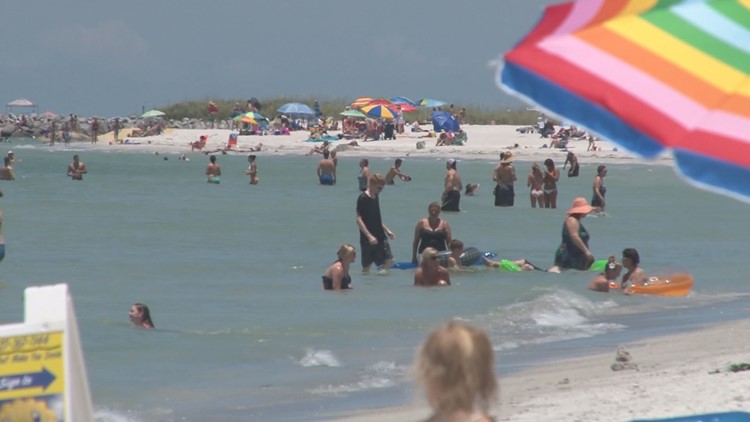A new Florida law goes into effect on July 1 that initially caused a lot of confusion about how the public can access the beach. It’s House Bill 631 and lawmakers say it was widely misunderstood and has nothing to do with allowing the public to access the beach or not.
But the bill still got a ton of public kickback. The bill is called “possession of real property” and it “prohibits local government from enacting or enforcing an ordinance or rule-based customary use; provides an exception; creates, revises & repeals related procedural provisions.”
But what does that really mean? Keep reading.
Let’s start with some background. The Florida constitution says all land seaward of the mean high-tide line belongs to the public and no one can deny you access to it. Land above that line can be either public or private.
Some local governments have passed “customary use” ordinances meaning that private land that’s been used for a while for public recreational use can still be used by the public moving forward. But the bill says that’s not right and requires local governments to prove in court that taking private land for public recreation is necessary and in the public interest. A judge would then rule if it’s fair or not.
There was so much confusion about the initial bill that Senator Darryl Rouson asked for clarification. “Well, we learned the bill is not so confusing and the intent of the bill’s sponsors was to create an additional step to give the public more clarification, and process to use the courts so that people would not be confused about access to public beaches or access to property that private owners seek to make private,” Rouson said.
The bill got so much attention Governor Rick Scott addressed why he signed it into law too.
“What it does is it protects the rights of the public to get on the beach and protects the right of the property owner, their property rights, so I think it’s a good bill,” Gov. Scott said.
What about enforcement?
The Pinellas County Sheriff's Office explained they’re not going to be proactive about Florida’s new beach law. They plan on responding based on complaints they get from home and business owners. From there, deputies will use their discretion on how to handle it.
Corporal Dan DiFrancesco said, “ In the event we receive trespassing complaints, deputies will investigate each incident on a case by case basis, taking into account the new law and how it relates to the specific property in question. If it’s determined there is a violation, deputies will have the discretion to issue warnings and educate the public.”
A spokesperson with the City of Clearwater said the law will have minimal impact in their city because so much of the beach is public.
►Make it easy to keep up-to-date with more stories like this. Download the 10 News app now.
Have a news tip? Email tips@wtsp.com, visit our Facebook page or Twitter feed.



